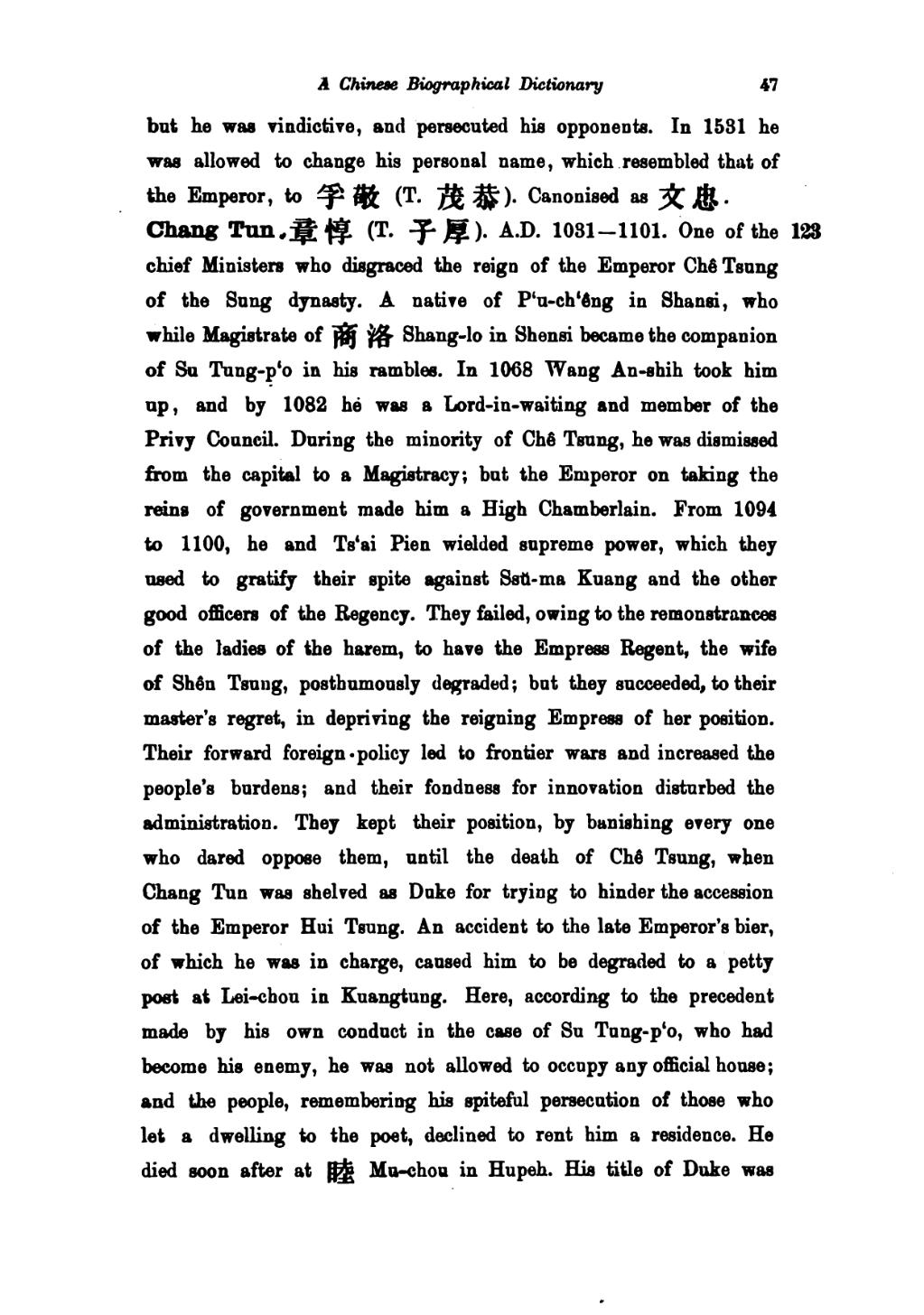but he was vindictive, and persecuted his opponents. In 1581 he was allowed to change his personal name, which resembled that of the Emperor, to 孚敬 (T. 茂恭). Canonised as 文忠.
123 Chang Tun 章惇 (T. 子厚). A.D. 1031-1101. One of the chief Ministers who disgraced the reign of the Emperor Chê Tsung of the Sung dynasty. A native of P'u-ch'êng in Shansi, who while Magistrate of 商洛 Shang-lo in Shensi became the companion of Su Tung-p'o in his rambles. In 1068 Wang An-shih took him up, and by 1082 he was a Lord-in-waiting and member of the Privy Council. During the minority of Chê Tsung, he was dismissed from the capital to a Magistracy; but the Emperor on taking the reins of government made him a High Chamberlain. From 1094 to 1100, he and Ts'ai Pien wielded supreme power, which they used to gratify their spite against Ssŭ-ma Kuang and the other good officers of the Regency. They failed, owing to the remonstrances of the ladies of the harem, to have the Empress Regent, the wife of Shên Tsung, posthumously degraded; but they succeeded, to their master's regret, in depriving the reigning Empress of her position. Their forward foreign policy led to frontier wars and increased the people's burdens; and their fondness for innovation disturbed the administration. They kept their position, by banishing every one who dared oppose them, until the death of Chê Tsung, when Chang Tun was shelved as Duke for trying to hinder the accession of the Emperor Hui Tsung. An accident to the late Emperor's bier, of which he was in chaise, caused him to be degraded to a petty post at Lei-chou in Kuangtung. Here, according to the precedent made by his own conduct in the case of Su Tung-p'o, who had become his enemy, he was not allowed to occupy any official house; and the people, remembering his spiteful persecution of those who let a dwelling to the poet, declined to rent him a residence. He died soon after at 睦 Mu-chou in Hupeh. His title of Duke was

